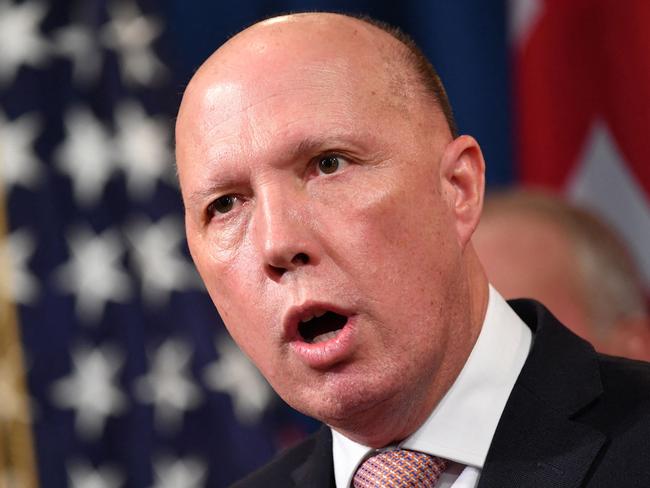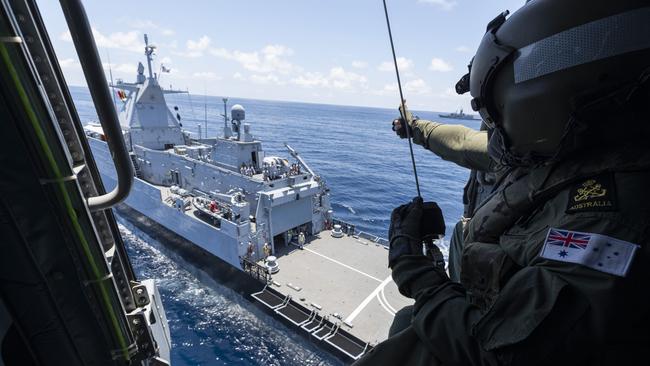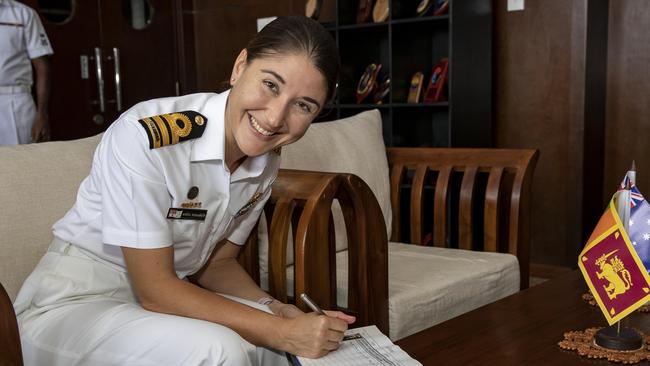Peter Dutton’s ‘shadow aggression’ talks with global allies
Defence Minister Peter Dutton has revealed how he will use the US other allied forces to fight security threats in our region.
National
Don't miss out on the headlines from National. Followed categories will be added to My News.
Regional “shadow aggression” will top the agenda as Defence Minister Peter Dutton plans to visit allies including the United States and Japan as their forces rehearse fighting together.
Mr Dutton told News Corp security pacts like Five Eyes and the Quad were essential in maintaining a balance for what he said were “widely understood” challenges and threats in the region.
The Federal Government’s Budget papers this week specifically highlighted the importance of the Quadrilateral Security Dialogue (Quad) of the US, Japan, Australia and India which this coming year was to be “an even more prominent pillar of our international agenda”.
The East Asia Summit and ASEAN was also seen as critical.

Mr Dutton said while COVID-19 had paused his plans for high level visits, meetings were being conducted online, and his troops were conducting essential military exercises with allies.
This week the Royal Australian Navy joined land, maritime and air elements from Japan, France and the United States for exercises off the south coast of Japan.
These he said were part of the “evolution” of the ADF, to have greater interoperability with allied forces and understand and be more responsive to “grey zone” conflict threats.
Defence has long stated defending our shores would involve interoperability in understanding, practice and equipment between allied forces.
“We’re still living in a COVID world but I’m very keen to get overseas to visit our friends and allies including the United States and Japan and many others but I think at the moment we are faced with reality of COVID and perhaps have to continue to engage over the internet,” Mr Dutton told News Corp.
But he added troops engagement with counterparts was constant and in shadow aggression Australia also stood up for “national values, sovereignty and for our closest friends and allies”.

“Helping to build capacity, there is still an enormous amount of respect between the respective defence forces in our near neighbours and Australia, many of them have trained together, many of them attended colleges together, many have fought alongside, we want those relationships to deepen as well and that’s the focus for now … that (ADF) evolution is already underway as you’d expect particularly with Our Five Eyes partners there are many joint operations we work on in our own national interest and in the interest of our Five Eyes partners so that work continues and there is well and truly an understanding of the threats in relation to cyber, so we need to continue to invest in that space.”
Mr Dutton said after six years on the National Security Committee, as then Home Affairs Minister now Defence, working alongside ADF chief General Angus Campbell and Navy chief Vice Admiral Michael Noonan had given him great confidence.
“I have been supportive for a long time in their work and their build up in capacity, their necessary wading into grey zone issues, cyber attacks and offensives and since I’ve moved into the portfolio all of that has become highlighted to me and there is a lot of challenge in the region and for the decades ahead.”

This week Anzac-class frigate HMAS Parramatta began training activity in bluewater combat, amphibious and aviation training elements.
Commander of the Joint Task Force, Rear Admiral Mark Hammond, said Exercise ARC21 provided Australia with an opportunity to test interoperability under a shared commitment to a safe and stable Indo-Pacific region.
HMAS Parramatta’s Commanding Officer Commander Anita Nemarich, said it would also further develop the capabilities of her ship and crew.
“By exercising with our partner navies we build trust and mutual respect which enhances our ability to work together,” she said.




